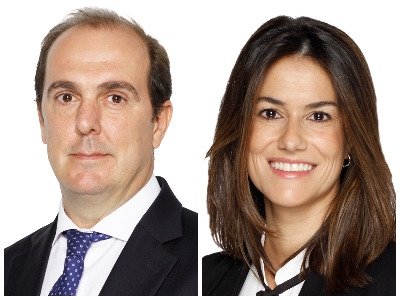Brexit: designing the future or leaving a mark?

The consequences of the withdrawal of the UK from the European Union in the field of Trademarks and Community Designs

As its generally known, the formal withdrawal of United Kingdom from the European Union and the European Atomic Energy Community on February 1st 2020, its likely to represent an unavoidable and, in certain cases, insuperable hurdle on many rights that have been framed under Union Law.
Unlike those, this seems to not be the case for Intellectual Property Rights (“IP Rights”) granted on the European Union, which deserved their own title on the UK Withdrawal Agreement with provisions focuses on its impact on IP Rights already granted by the European Intellectual Property Organization (“EUIPO”), namely Trademarks and Designs. Regarding those Rights, quoting Michel Barnier (Head of Task Force for Relations with the UK) we could say that the “Withdrawal Agreement creates legal certainty where Brexit created uncertainty.”.
After the transition period (December 31st 2020) the Regulation (EU) 2017/1001 of the European Parliament and of the Council of 14 June 2017 (on the European Union trademarks) and the Council Regulation (EC) No 6/2002 of 12 December (on community designs), are no longer applicable on the UK territory, which means that, after that period, any Right granted or application pending will only cover EU Member states. Consequently, all existing seniority claims based on national trademark rights in the UK and unregistered community designs made available to the public in the UK, will cease to have an effect in the European Union.
Considering this, what will happen to IP Rights registered before and during the transition period?
All the European Union trademarks or designs registered before December 31st, 2020 will become, without any re-examination, a registered and enforceable trademark or design in the UK, under the law of the United Kingdom. Furthermore, those Rights will maintain the renewal date in accordance with Union law. This transition process is to be carried out free of charge by the UK Intellectual Property Office and Parties are not required to introduce an application or to undertake any administrative procedure in the United Kingdom.
On the other hand, holders of IP Rights based in UK will maintain those Rights and its ownership will be regulated in the EU under Spanish Law, unless they have an effective establishment in a EU Member State, in which case the law of that EU Member State will apply.
As for international IP Rights pursuant to the Madrid System (trademarks) or the Hague System (designs) article 56 requires the UK to take measures to grant national registration for all the international registered trademarks or designs that have obtained protection before the end of the transition period.
What about the pending applications at the end of the transition period?
As for those, a similar protection is provided under Article 59(1) of the Withdrawal Agreement. The provision establishes a priority right for applications filed for a European Union trademark or a community design in accordance with Union law before the end of the transition period. This priority right consists on a preference to file for the same IP Right, within 9 months from the end of the transition period; this file will have the same filing date and priority date guaranteed by the EU rules.
Finally, one of the major changes regarding UK residents is that, after the transition period, all entities based in UK will have to be represented in all proceedings in accordance with the representation requirements imposed by EU Rules. This means that qualified legal representatives in the UK no longer meet the requirements set by these EU Rules.
In view of the above, namely the solutions conferred to IP Rights registered before December 31st, 2020, we can almost certainly say that the UK Withdrawal Agreement provides the best possible scenario for these IP Rights – especially trademark rights. Other less sensible solution would be likely to cause an irreparable chasm between the EU market and the UK market, which would undoubtedly result in a very severe aftermath for all entities operating in the EU and the UK.
By Sara Henriques – Partner, SPS Law Firm and Carlos Gomes – Associate Lawyer, SPS Law Firm.
About Sara Henriques
Sara is partner at SPS Law Firm since 2013, where she started her career in 2003.
She is partner at Corporate and Commercial department and is the head of the Data Protection and Intellectual and Industrial Property area, handling issues such as brands, copyrights and advertising law and data protection. With an outstanding ability of customer care, and her dynamic spirit of engagement with the client, her work goes through providing legal advice on day-to-day operations of Companies, complementing the internal Legal Department or, when organisations do not have such department, ensuring they have all necessary legal support: negotiation of a variety of contractual instruments (particularly SPA’s and commercial and distribution agreements), marketing campaigns approval or due diligence reports are part of her day-to-day work. We highlight her accumulated experience in the food industry and retail, health sector as well as automotive industry.
Sara holds a law degree from the University of Lisbon Law School, a Post-graduate studies in Company Law from the University of Coimbra Law School, a Post-graduate studies in Consumer Law from the University of Lisbon Law School and since 2018, she got a Certification for Data Protection Officer (DPO) from the European Institute of Public Administration (EIPA), Maastricht. Her main areas of practice are Corporate and Commercial Law, M&A, Advertising and Marketing Law, as well as Data Protection Law, area in which has focused its analysis and practice attending to the new General Data Protection Regulation.
Sara is the DPO for five corporate groups (national and international), and also provides assessment with GPDR, and legal advice in this field, to several clients.
About Carlos Gomes
Carlos is Associate lawyer at SPS Law Firm since 2019. Previously he was a trainee at Ministry of Foreign Affairs – Services of International Political Organizations Department (SPM).
He holds a Law degree from the University of Lisbon Law School (2017), and he is Master student in Law and Legal Practice in Administrative Law and Public Administration. He also holds a Postgraduate studies in Economic Law and Social Investment from the European Institute and Institute for Legal and Political Sciences from the University of Lisbon Law School (2017), attendance of Postgraduate advanced studies in Data Protection Law from the University of Lisbon Law School (2019), Intensive course in U.S Legal Methods: Introduction to US Law from the George Washington Law School (2016), and a Course of Procedimental and Procedural Law of Intellectual Property from the International Chambers of Commerce.
His main areas of practise are Intellectual Property and Consumer Law.












